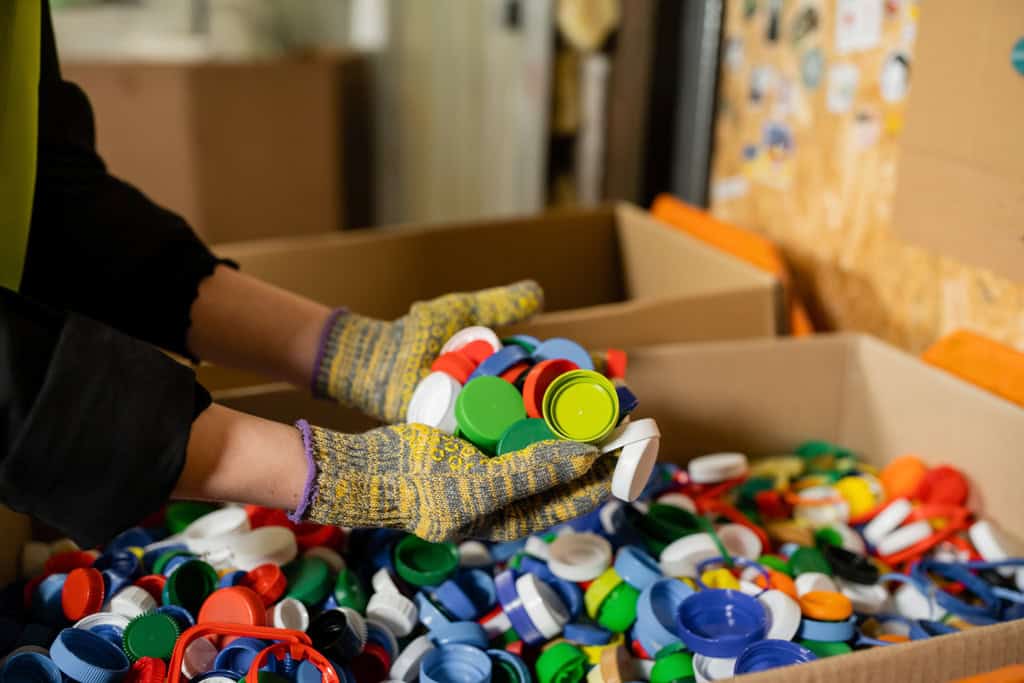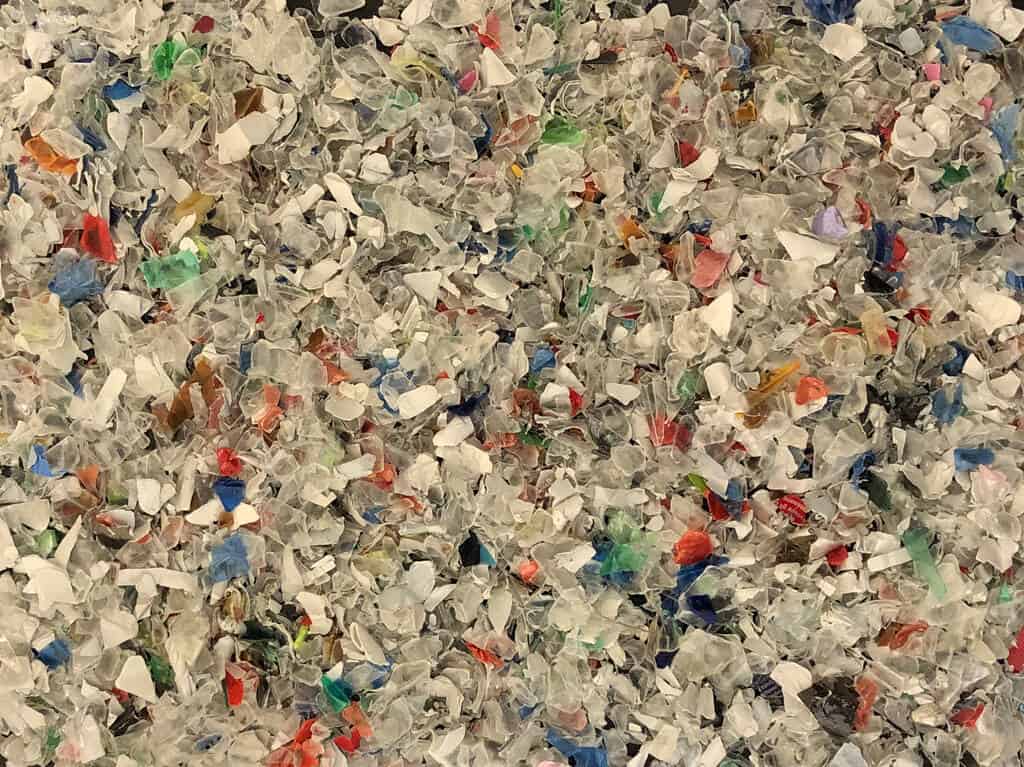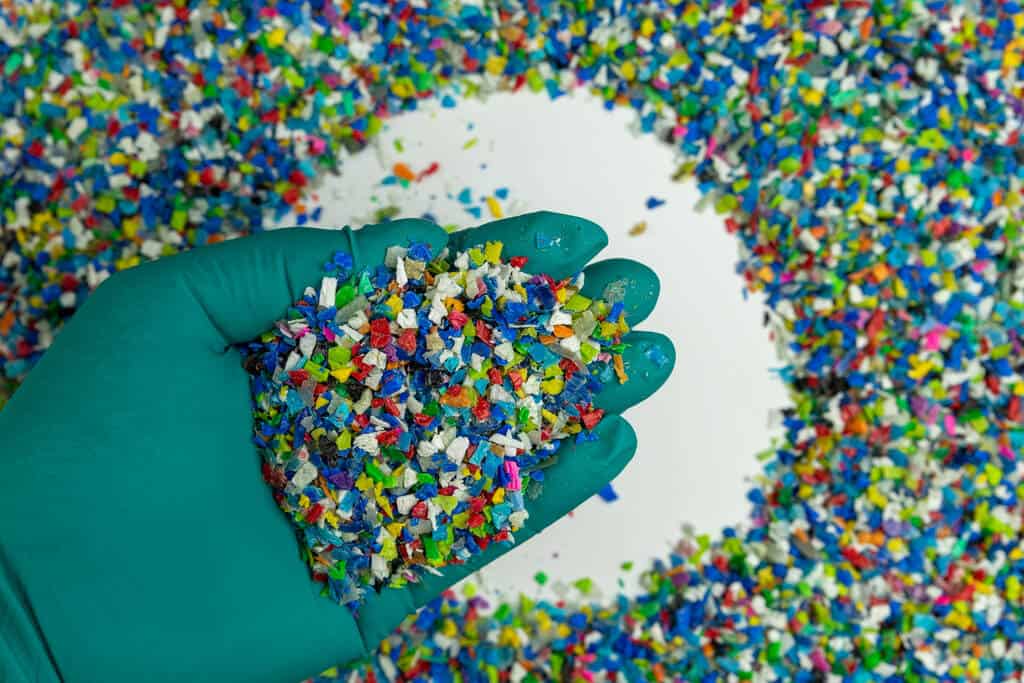Our Process Of Buying Plastic Scrap Materials

Buying scrap plastic involves a complex process that connects recyclers with potential buyers. These buyers might be brokers, manufacturers, or processors who are looking for specific types of materials to meet their production needs.
When a recycler receives items, they sort and process them into different categories of scrap. This scrap is then sold to buyers who can use it as raw components in their manufacturing processes. The market space for plastic scrap operates similarly to other commodity markets, with prices being determined by supply and demand dynamics. The prices of different types of scrap can vary depending on factors such as the availability of the item, its quality, and its desirability in the market.
Buyers of scrap plastics consider a wide range factors when assessing the value of a particular type. These factors include the specific kind of plastic, its purity, any additional processing required, and its availability. Buyers also take into account the current market conditions, including the demand for the specific type of plastics and the competitiveness of the overall recycling market.
Ultimately, the price of scrap is negotiated between the waste buyer and the seller, considering all the relevant factors. This dynamic market ensures that recyclers receive fair prices for their scrap materials, while buyers can access the materials they need to meet their production requirements.
In this article, we will discuss how we, Chesapeake Materials, typically buy scrap in quantity from recyclers in the open market. Let’s dive in!
We Start With A Discovery Call

During the initial discovery call, our team aims to understand the types of materials you have available. This helps us determine the potential value of your scrap and whether it matches the current demands of the market space. We’ll ask you questions about the specific plastic types, such as high-density polyethylene (HDPE), polyvinyl chloride (PVC), or polyethylene terephthalate (PET). Providing us with information about the quality and purity of these items is crucial to assessing their value.
In addition to understanding the types of plastic, we also need to know the quantity and frequency of your available stock. This information helps us plan and estimate whether we can accommodate your supply. Sharing pictures of the items after the discovery call is also highly beneficial. These images allow us to visually verify the quality, ensuring its suitability for the recycling process.
By collecting these details during our discovery call, we can assess the viability of purchasing your scrap. Rest assured, our friendly team will guide you through the process, answering any questions you may have. Our goal is to make the process as smooth and transparent as possible for you, helping you turn your plastic waste into a valuable resource.
Here Is What We Buy
At CMS, our goal is to contribute to a more sustainable future by recycling waste. We understand that every small step counts, which is why we buy almost all types of scraps. Whether it’s PP, PET, HDPE, LPDE, PVC, Nylon, or more, we’re interested in it!
When it comes to buying scrap, we prioritize two key factors: quantity and frequency. Knowing how much you have available and how often you can provide it helps us determine if we can accommodate your supply. These things are important to potential buyers.
What Factors Determine Plastic Scrap Prices?
When it comes to determining plastic scrap prices, several factors play a role in the process. One important factor is the type of waste being sold. Different types of materials have varying market demand and recycling capabilities, which can impact their value. For example, high-density polyethylene (HDPE) and polyethylene terephthalate (PET) are commonly sought after due to their versatility and ease of recycling. Other factors include quantity, condition, and market demand.
By considering these factors – the type of material, quantity, condition, and market demand – you can better understand how plastic scrap prices are determined. So, if you’re looking to sell your plastic scrap, be sure to keep these factors in mind and find a buyer, like us, who can offer a fair price. Let’s explore these factors a little more.
The Quality Of Scrap Impacts Prices

When it comes to buying plastic waste, the quality of the material can have a significant impact on the prices you can expect to receive. Buyers are always on the lookout for high-quality scrap that can be easily processed and used in various applications.
Clean and well-sorted scrap is the most desirable for buyers. This type of material is free from contaminants and is sorted according to its specific type. When the material is clean and sorted, it requires less processing and can be used directly in manufacturing processes. Because of this, buyers are willing to pay a higher price for such materials.
Contaminated or mixed materials, on the other hand, have a lower value in the recycling market. These items may have impurities, such as dirt, grease, or other materials mixed in, which can make them more difficult to process. Buyers often have to invest extra time and resources in sorting and cleaning these materials before they can be used, which reduces their value.
So if you’re looking to sell your scrap, it’s essential to consider the quality of the material. Clean and well-sorted waste is more valuable as it requires less processing and can be used in various applications. On the other hand, contaminated or mixed items may have a lower value.
Manufacturer Needs To Determine Prices
Different manufacturers have specific needs and requirements for the materials they use in their production processes. This means that the demand for certain types of material can vary depending on the industry and the specific manufacturer’s needs.
The demand for HDPE in the packaging industry can be quite high, which drives up the prices for sellers who have this specific type of plastic.
Similarly, manufacturers in the construction industry may be interested in purchasing polyvinyl chloride (PVC) scrap plastic. PVC is a versatile that is commonly used in construction materials such as pipes, windows, and even flooring. Its durability and resistance to chemicals make it a preferred choice for many construction projects. As a result, the demand for PVC in the construction industry can be strong, leading to higher prices for sellers who have PVC scrap plastic.
Manufacturers may also have specific requirements for the size, shape, and color of the scrap plastic they purchase. For example, a manufacturer in the automotive industry may require plastic with specific dimensions and coloring to match their production needs. This further highlights the importance of understanding the specific needs of prospective buyers when selling scrap plastic.
The Global Economy
The demand for scrap materials is heavily influenced by the overall health of the global economy. When economies are booming, there is a greater demand for raw materials to fuel manufacturing and construction industries. As a result, the prices of waste materials tend to rise, as manufacturers are willing to pay a premium to meet their production needs.

Conversely, during economic downturns or periods of uncertainty, the demand for scrap materials can decrease. This can be due to reduced manufacturing activity or a decrease in construction projects. When there is less demand for scrap materials, prices can drop as sellers compete to find waste buying clients. In such situations, it can be more challenging for sellers to sell their scrap plastic at a desirable price.
Another crucial factor that affects scrap prices is international trade. The global nature of the scrap industry means that prices can be influenced by events and policies in other countries. For example, changes in import/export regulations, tariffs, or currency fluctuations can impact the flow of scrap materials between countries, leading to changes in demand and prices.
Oil And Gas Prices Impact Plastic Scrap Prices
The price of oil and natural gas is an essential factor that affects the prices of plastic scrap in the market. You may wonder, what is the connection between these energy commodities and scrap plastic? Well, plastic is derived from petroleum or natural gas, which means that fluctuations in the prices of these energy sources can have a direct impact on the cost of producing and recycling scraps.
When the prices of oil and natural energy, such as gas, are high, it becomes more expensive to produce new plastic products. This can lead manufacturers to seek alternative sources of materials, such as recycled plastic scrap. As the demand for recycled plastic increases, so does the price. Sellers of plastic waste are then able to command higher prices for their materials.
When the prices of oil and natural gas are low, it becomes more cost-effective for manufacturers to produce new product using virgin, or non-recycled, materials. This can reduce the demand for recycled plastic scrap and subsequently lower its price in the market. Sellers may need to adjust their prices to remain competitive in such situations.
As a seller of plastic scrap, it is beneficial to keep an eye on the prices of oil and natural gas and understand their impact on the overall plastic recycling market. By staying informed and adjusting pricing strategies accordingly, sellers can position themselves competitively and maximize their profits in this ever-changing industry.
We Make An Offer Based On Market Value
If we think there is a good fit for a partnership we will make you an offer based on the conditions mentioned that we’ve already covered in this article.
As a seller, it’s essential to keep yourself informed about these market dynamics as well. Stay connected with industry news, attend trade shows or conferences, and network with other industry professionals. By having a finger on the pulse of the plastic recycling market, you’ll be better equipped to negotiate and make informed decisions.
It’s also worth noting that we may consider other factors when making an offer. For instance, we may take into account the proximity of your location to their facility, as transportation costs can impact the final price.
Ultimately, as buyers we strive to strike a fair deal that aligns with market conditions and meets their specific needs. While you may have a certain price in mind for your scrap, it’s important to remember that the offer you receive will be influenced by the current market. By understanding the market dynamics and collaborating with experienced buyers, you can ensure you receive a competitive offer for your scrap plastic.
What We Do with It

At Chesapeake Materials, we understand the value of scrap plastic and the importance of recycling it to minimize its impact on the environment and reduce waste.
What do we do with the scrap? Let us take you through our process.
First, we carefully sort and categorize the scrap plastic based on its type and quality at our storage facility. This is a crucial step as it ensures that the recycling process is efficient and effective. We separate different types of plastic, such as polyethylene, polypropylene, polyvinyl chloride (PVC), and more. By doing so, we can optimize the recycling process for each specific type of plastic material.
Once the scrap plastic is sorted, we then clean and prepare it for the recycling process. This includes removing any labels or contaminants to ensure the purity of the material. Our state-of-the-art equipment and expert technicians ensure that the cleaning process is thorough, resulting in high-quality recycled plastic.
After the cleaning process, the scrap plastic is shredded into small pieces to aid in the recycling process. These small pieces, also known as plastic flakes or granules, are then melted down and molded into new plastic products. We use advanced recycling techniques to maintain the integrity of the material, ensuring that it can be used for various applications.
From there the refined plastic scrap(resin) is then resold to manufacturers around the world to land into their production workflows. Just as we partner with sellers, we also partner with materials buyers who are looking for a consistent supply of high-quality recycled plastic materials. Sometimes our sellers and buyers are the same company, doing their best to reduce their footprint and move towards zero waste.
At Chesapeake Materials, we are passionate about sustainable practices and believe in the circular economy. We strive to minimize waste and maximize the value of scrap plastic by offering competitive prices for your materials. Our team of experts ensures that the entire process is carried out efficiently and with the utmost professionalism.
Sell It to Chesapeake Materials
Do you have scrap plastic lying around that you don’t know what to do with? Don’t just toss your waste away! Instead, consider selling it to us at Chesapeake Materials. We are always on the lookout for high-quality scrap plastic materials, and we’re willing to offer competitive prices for your unwanted plastic items. By selling your scrap to us, not only will you be getting some extra cash in your pocket, but you’ll also be contributing to a more sustainable future. It’s a win-win situation!
At Chesapeake Materials, we are committed to making the buying process as smooth and hassle-free as possible. We provide fair and competitive prices for your plastic, ensuring that you are getting the best value for your materials. Our team of experts will guide you through the entire process, answering any questions you may have and offering professional advice along the way.
So, before you throw away your waste, think about selling it to us. Not only will you be making some extra cash, but you’ll also be contributing to a greener planet. Remember, one person’s trash can be another person’s treasure. Let us turn your plastic waste into valuable recycled products and join us in creating a more sustainable future. Contact us today and let’s make a difference together!
